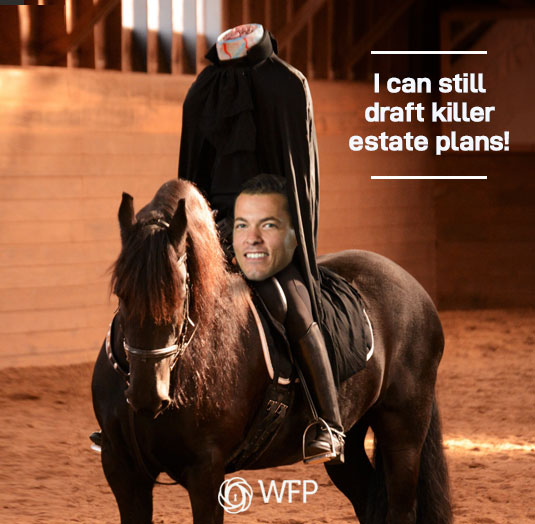 Halloween is here! What a time to be alive. Last year, Halloween celebrations were pretty much stifled. Though things aren’t back to normal yet (see the CDC guidelines for more information on how to celebrate safely), there’s at least a little breathing room. Halloween is a lot of peoples’ favorite holiday, even more than Christmas. We can’t say we blame them, as there’s a lot to love about spooky season, from the pumpkin spice to the candy to the horror movies.
Halloween is here! What a time to be alive. Last year, Halloween celebrations were pretty much stifled. Though things aren’t back to normal yet (see the CDC guidelines for more information on how to celebrate safely), there’s at least a little breathing room. Halloween is a lot of peoples’ favorite holiday, even more than Christmas. We can’t say we blame them, as there’s a lot to love about spooky season, from the pumpkin spice to the candy to the horror movies.
There are some things scarier than Halloween. Living irresponsibly and not having an estate plan is definitely on our list. In this article, we’ll talk about some major “don’ts” when it comes to estate planning.
Failing to Plan
Of course, the biggest planning mistake you can make is failing to plan in the first place. Estate planning is important because it secures not only your future, but your loved ones’ futures. If you die intestate, the court will focus on paying off creditors and wrapping up the estate. Not everyone you love will get what you want them to get.
Not Discussing
It’s a good idea to set expectations now and let people know what you’re planning to do, as part of your will. Let your family know where your assets will go after you pass on. Otherwise, you run the risk of disagreement or contention after you die.
Naming Only One Beneficiary
You should always list more than one beneficiary for your asset. That way, if a beneficiary passes or is otherwise unavailable, the asset won’t revert back into the estate. List a contingent beneficiary for each asset that you’re going to be transferring.
Forgetting Important Documents and Assets
Some documents that you absolutely cannot forget about include powers of attorney and healthcare representatives and final arrangements. You also don’t want to forget about digital assets you may have or charities that you find important. An attorney will help you come up with a comprehensive list of everything you want to include in your estate plan, and they’ll likely have suggestions as well, based on your situation.
Being Overly-Specific
We know that this one might seem counterintuitive, as lawyers often tell you that you should be overly-specific to the point of nausea. However, being too specific can sometimes be a negative when it comes to estate planning. You want to make sure that assets you have now will be of use in the future. Naming certain assets (sports tickets, real estate, etc.) with extreme specification opens up the risk that someone might get left out if the asset isn’t there in the future. The solution is to make sure you continuously update your estate plan to reflect any changes to these specifics.
Improper Funding for Trusts
Creating a trust is half the battle. You have to make sure it’s properly funded with a solid, trustworthy source. An unfunded trust is useless. In order to avoid this, work with an attorney to make sure everything is titled properly and that all the assets in the trust are actually in your name. Though this might not seem like a common problem, it actually is.
Tax Issues
Taxes and death—the two unavoidables of life. Estate tax liabilities will put a dent in what you leave to beneficiaries. Usually, this liability won’t be an issue unless you have a large estate worth millions. If you do fall into this category, you need to talk to a tax attorney about ways to legally minimize your estate’s tax burden.
You might be thinking to yourself that there are a lot of ways you can go wrong when it comes to estate planning. Luckily, estate planning attorneys can help you avoid these common pitfalls, ensuring that you’re dotting your Is and crossing your Ts.
 Halloween is spooky season. It’s a time for all ghosts, ghouls, and goblins to come out and make themselves known. For a lot of people, this time of year is their favorite. And we can see why. The leaves are changing (if you live up North, that is), and Christmas is drawing closer.
Halloween is spooky season. It’s a time for all ghosts, ghouls, and goblins to come out and make themselves known. For a lot of people, this time of year is their favorite. And we can see why. The leaves are changing (if you live up North, that is), and Christmas is drawing closer. Breast Cancer Awareness Month happens every October, and it’s a time to reflect on taking care of you and your loved ones. One in eight women will be diagnosed with invasive breast cancer over their lifetime, so this is a problem that affects everyone.
Breast Cancer Awareness Month happens every October, and it’s a time to reflect on taking care of you and your loved ones. One in eight women will be diagnosed with invasive breast cancer over their lifetime, so this is a problem that affects everyone.